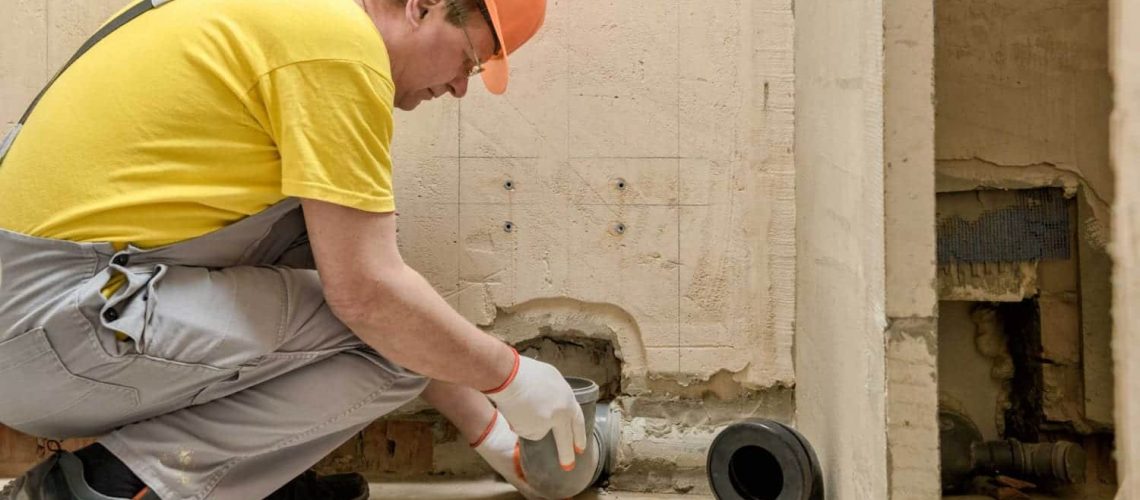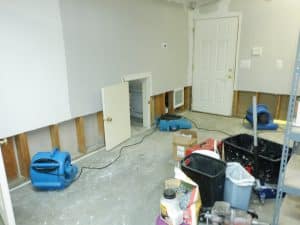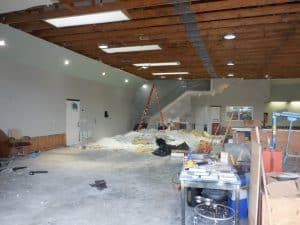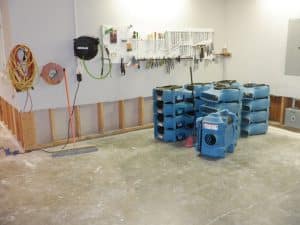Key Takeaways
- Water damage starts immediately and gets worse over time if left untreated.
- Within 24-48 hours, mold and bacteria can develop, creating health risks.
- After a week, structural damage becomes severe, requiring costly repairs.
- Water spreads quickly, seeping into walls, floors, and insulation.
- Taking fast action—stopping the source, removing water, increasing airflow, and calling professionals—can minimize long-term damage.
- 4Pros Restoration provides expert water damage restoration to help homeowners recover quickly and safely.
At 4Pros Restoration, we get this question a lot: “Does water damage get worse over time?” The simple answer is yes—and it happens faster than you might think. If water damage isn’t addressed quickly, it can lead to bigger, more expensive problems. In this blog, we will break down what happens when water damage is left untreated, how fast it can spread, and what you can do to stop it before it gets worse.
The First 24 Hours: The Clock Starts Ticking
The moment water enters your home, the damage begins. It doesn’t take long for moisture to start soaking into the walls, floors, furniture, and your personal belongings. Within minutes, water can seep into cracks and porous materials, making it difficult to remove completely.
In the first few hours:
- Carpets and rugs start absorbing water, leading to staining and odors.
- Wood begins to swell and warp.
- Drywall starts to weaken.
- Electrical components may be at risk, increasing the chance of short circuits or fires.
If water damage is caught at this stage, professional restoration services can often minimize the damage, saving you time and money.
After 48 Hours: Mold and Bacteria Take Over
If the water is still present after 24 to 48 hours, the damage starts to escalate. The biggest concern? Mold. Mold spores are everywhere, but they need moisture to grow. Once they have it, they can spread quickly.
Signs of mold growth include:
- Musty smells
- Discolored walls, ceilings, or floors
- Increased allergy or respiratory issues for occupants
Standing water also creates a breeding ground for bacteria and other harmful microorganisms. This is especially dangerous if the water came from a contaminated source like a sewer backup or flooding. If you are dealing with contaminated water, it is important to avoid exposure and trust the experts who have the proper protective equipment and training to handle the situation safely.
The First Week: Structural Damage Begins
After a week of water exposure, structural damage starts becoming more severe. The materials in your home are not designed to stay wet for long periods of time and are greatly affected as a result.
Here’s what can happen:
- Wood flooring and framing start to break down, leading to instability.
- Drywall crumbles and loses its strength.
- Paint and wallpaper peel off the walls.
- Insulation becomes waterlogged and ineffective, leading to higher energy bills.
At this point, repairs become more complicated. Instead of drying and cleaning, full replacements of flooring, drywall, and insulation may be necessary.
Beyond a Week: Major Repairs and Health Risks
If water damage is left untreated for several weeks or longer, the consequences can be severe. The structural integrity of your home may be compromised, requiring extensive repairs. Mold colonies may spread deep into walls and ceilings, making them harder and more expensive to remove.
Health risks also increase. Long-term mold exposure has been linked to respiratory issues, allergic reactions, and chronic illness. In some cases, water damage can even weaken the foundation of a home, leading to significant safety hazards.
How Fast Does Water Actually Spread?
Water doesn’t just stay in one place. It follows gravity and wicks into surrounding materials. Though this might sound like a roundabout answer, it truly depends on the affected area. For example- your carpets and fabric materials are going to absorb water a lot quicker than maybe some of the harder, less porous surfaces in your home or business. Here are some examples of exactly how quickly water can spread based on the materials it is affecting:
- Water on a hardwood floor can seep into subflooring within hours.
- Moisture can move up drywall by several inches each day.
- Insulation absorbs water like a sponge, spreading it to new areas.
This means even a small leak can create widespread damage if left unchecked.
What Causes Water Damage?
Understanding the sources of water damage can help prevent problems before they start. Common causes include:
- Leaking pipes – Even a slow drip can lead to major damage over time.
- Roof leaks – Damaged shingles or flashing can allow rainwater inside.
- Flooding – Storms, heavy rain, and overflowing bodies of water can cause widespread damage.
- Appliance failures – Washing machines, water heaters, and dishwashers can leak unexpectedly.
- HVAC issues – Poor ventilation and condensation buildup can contribute to water damage and mold growth.
How to Prevent Water Damage from Getting Worse
If you experience water damage, taking quick action can make all the difference. Here’s what to do:
- Stop the Source – If possible, shut off the water supply or fix the leak.
- Remove Excess Water – Use towels, a wet/dry vacuum, or pumps to get rid of standing water.
- Increase Airflow – Open windows, turn on fans, and use dehumidifiers to dry out affected areas.
- Call a Professional – Water damage restoration experts (like us at 4Pros Restoration) have the tools and expertise to dry, clean, and restore your home properly.
Why Professional Restoration Matters
Some homeowners try to handle water damage on their own, but DIY methods often miss hidden moisture that can lead to long-term issues. Professional restoration teams use specialized equipment like moisture meters, industrial-strength dehumidifiers, and high-powered fans to ensure every part of your home is properly dried and restored.
At 4Pros Restoration, we help homeowners and businesses recover from water damage quickly and efficiently. Whether it’s a small leak or a major flood, we know how to stop the damage before it gets worse.
Final Thoughts
Yes, water damage absolutely gets worse over time. The longer it sits, the more it spreads, weakens materials, and creates health hazards. The good news? Taking action quickly can prevent serious damage and save you money in the long run.
If you’re dealing with water damage, don’t wait. Contact 4Pros Restoration today, and let us help you restore your home before the damage becomes a bigger problem!




